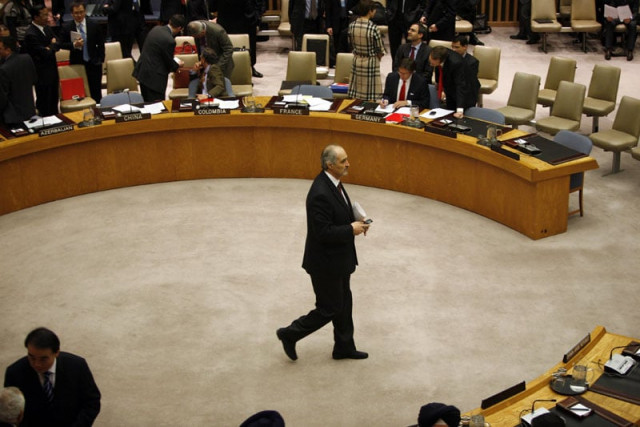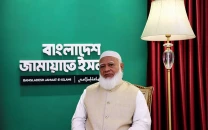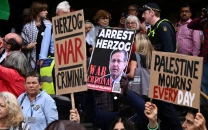Russia says no to Syria sanctions as UN talks begin
Russia and China previously vetoed U.N. resolutions designed to pressure Assad.

The 15-member council must decide the future of the UN mission, known as UNSMIS, before July 20, when its 90-day mandate expires. UNSMIS was deployed to monitor a failed truce as part of international envoy Kofi Annan's peace plan.
Russia has proposed extending the mission for 90 days, but Britain, the United States, France and Germany countered with a draft resolution to extend the mission for just 45 days and place Annan's peace plan under Chapter 7 of the UN Charter.
Chapter 7 allows the council to authorize actions ranging from diplomatic and economic sanctions to military intervention.
U.S. officials have said they are talking about sanctions on Syria, not military intervention.
The Security Council is currently due to vote next Wednesday.
President Bashar al-Assad's forces have killed more than 15,000 people since a crackdown on pro-democracy protesters began in March 2011, some Western leaders say. Damascus says rebels have killed several thousand of its security forces.
"We are definitely against Chapter 7. Anything can be negotiated, but we do not negotiate this, this is a red line," Russian Deputy UN Ambassador Alexander Pankin told reporters.
The opening stance by Russia, a key ally of Syria, was no surprise to Western diplomats. Russia and China previously vetoed UN resolutions designed to pressure Assad.
"They would say that at this stage wouldn't they," said Britain's UN ambassador, Mark Lyall Grant. "It's clear that there's very strong support for the text."
Negotiations are unlikely to move quickly. After the first round of talks on Thursday, French UN Ambassador Gerard Araud said that negotiators started 10 miles apart, and "now we are 10 miles less 5 centimeters."
'TIME TO ACT'
The Western-backed draft resolution in particular threatens the Syrian government with sanctions if it does not stop using heavy weapons and withdraw its troops from towns and cities within 10 days of the adoption of the resolution.
A Western diplomat, who did not want to be named, said the resolution had been drafted with the strongest possible language and action because "it's long past time for the council to act."
"It's frankly outrageous that the council would leave unarmed observers twisting in the wind and not use all the tools they have at their disposal," he said. "We're now at the point where 100 or more people are dying a day."
Opposition activists said more than 200 people, mostly civilians, were massacred in a Syrian army and militia onslaught in a village in the rebellious province of Hama on Thursday.
Syrian Ambassador to the United Nations Bashar Ja'afari said on Wednesday that countries raising the threat of sanctions were not helping efforts to end the conflict and maintained that Damascus was committed to Annan's peace plan.
Annan asked the UN Security Council on Wednesday to make clear to Syria's government and opposition there would be "clear consequences" for not complying with his plan to broker peace in a conflict that has killed thousands.
"The United States is determined to support him (Annan) because our experience of the last year makes it absolutely clear that the Assad regime will not do anything without additional further pressure," U.S. Secretary of State Hillary Clinton said on Thursday during a visit to Cambodia.
UN chief Ban Ki-moon has recommended a shift in the emphasis of UNSMIS' work from military observers - who suspended most of their monitoring activities on June 16 because of increased risk amid rising violence - to the civilian staff focusing on a political solution and issues like human rights.



















COMMENTS
Comments are moderated and generally will be posted if they are on-topic and not abusive.
For more information, please see our Comments FAQ